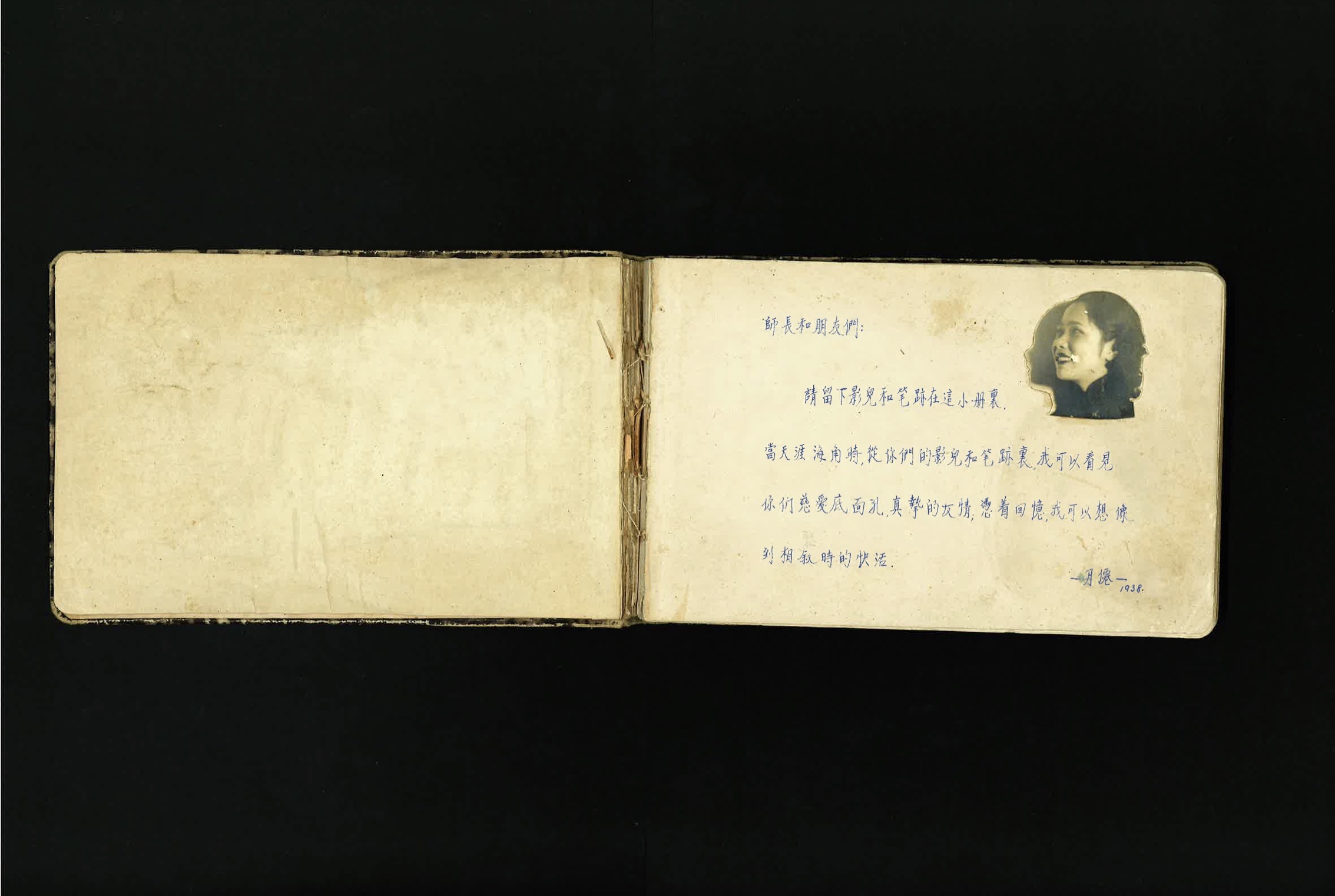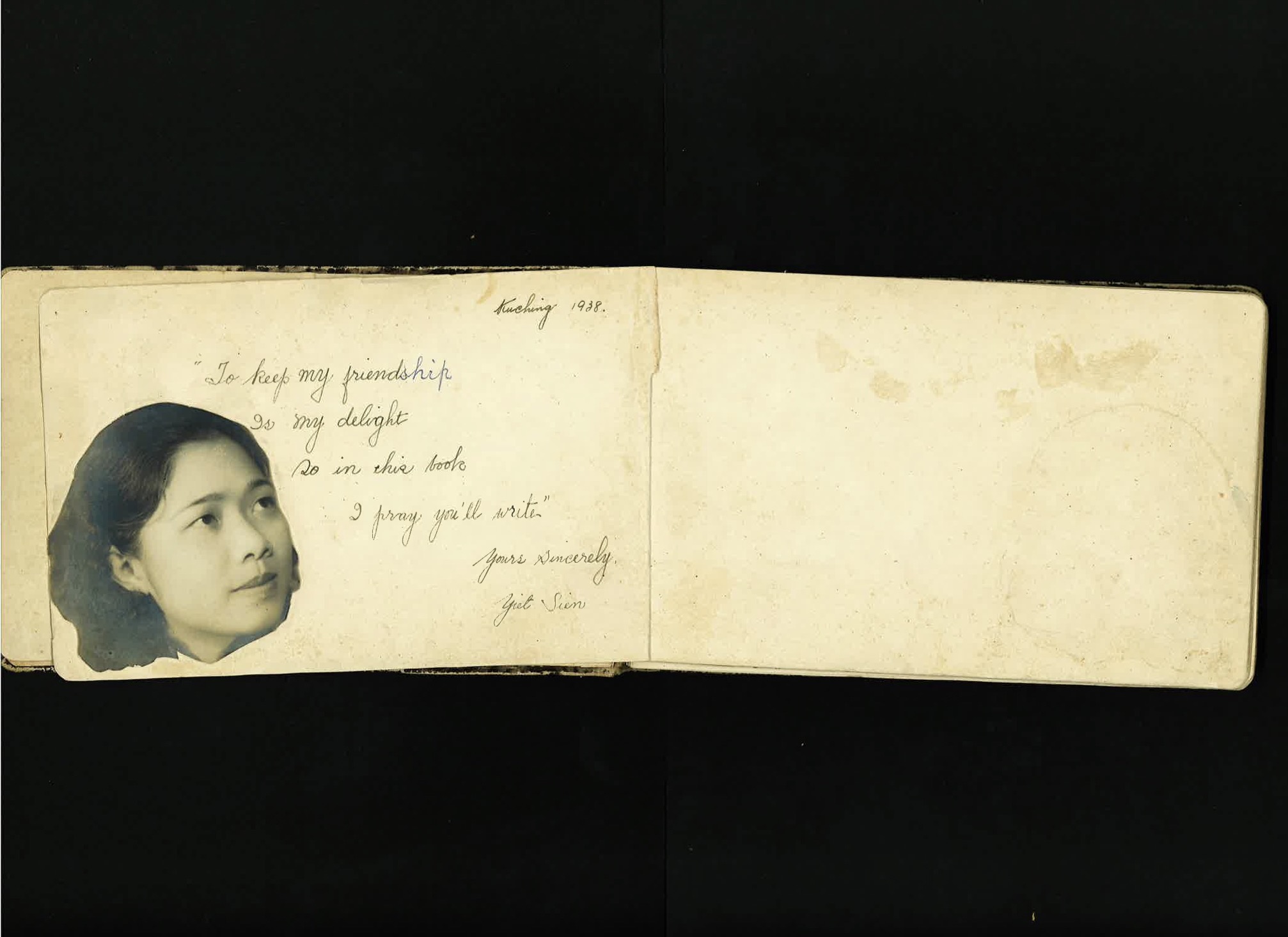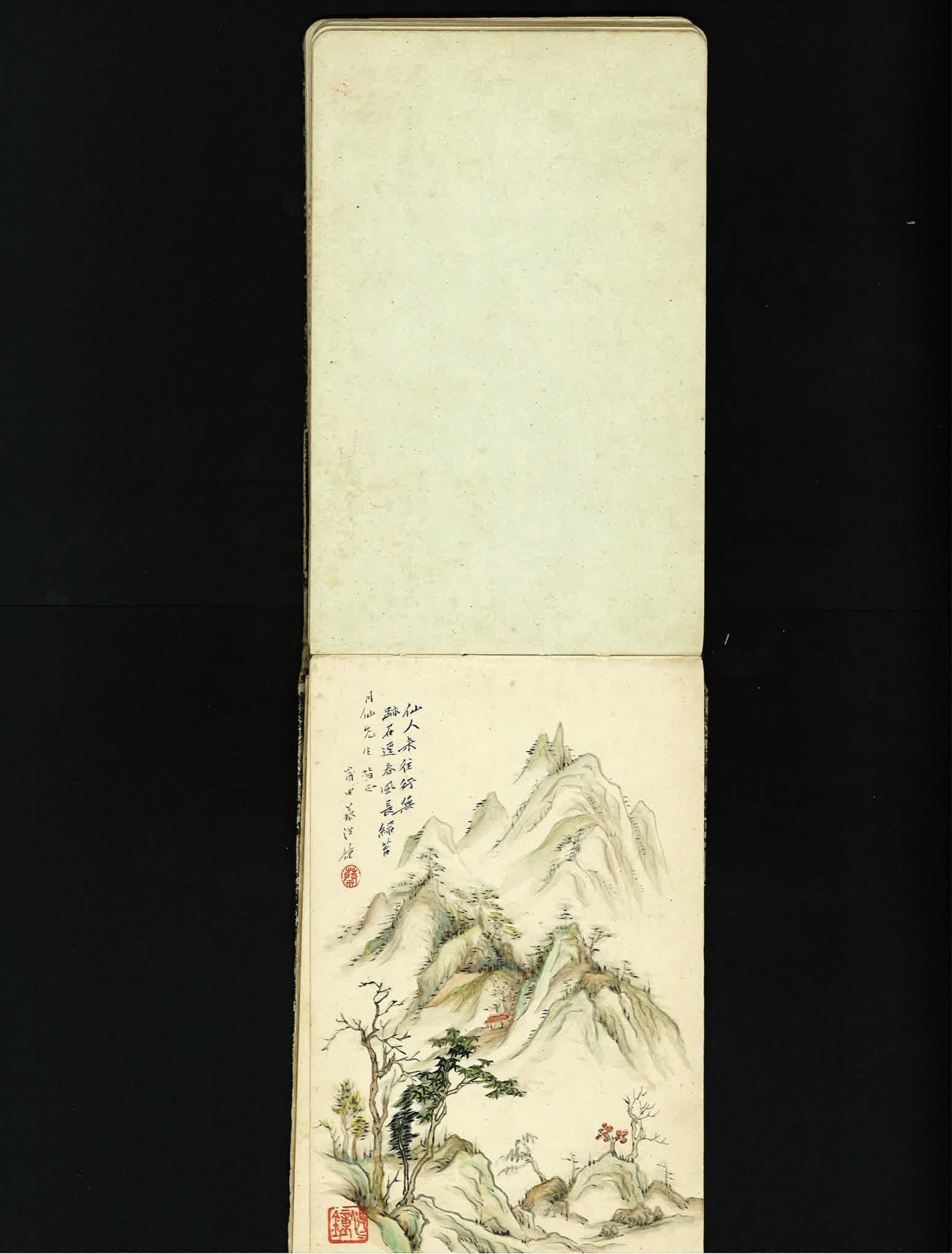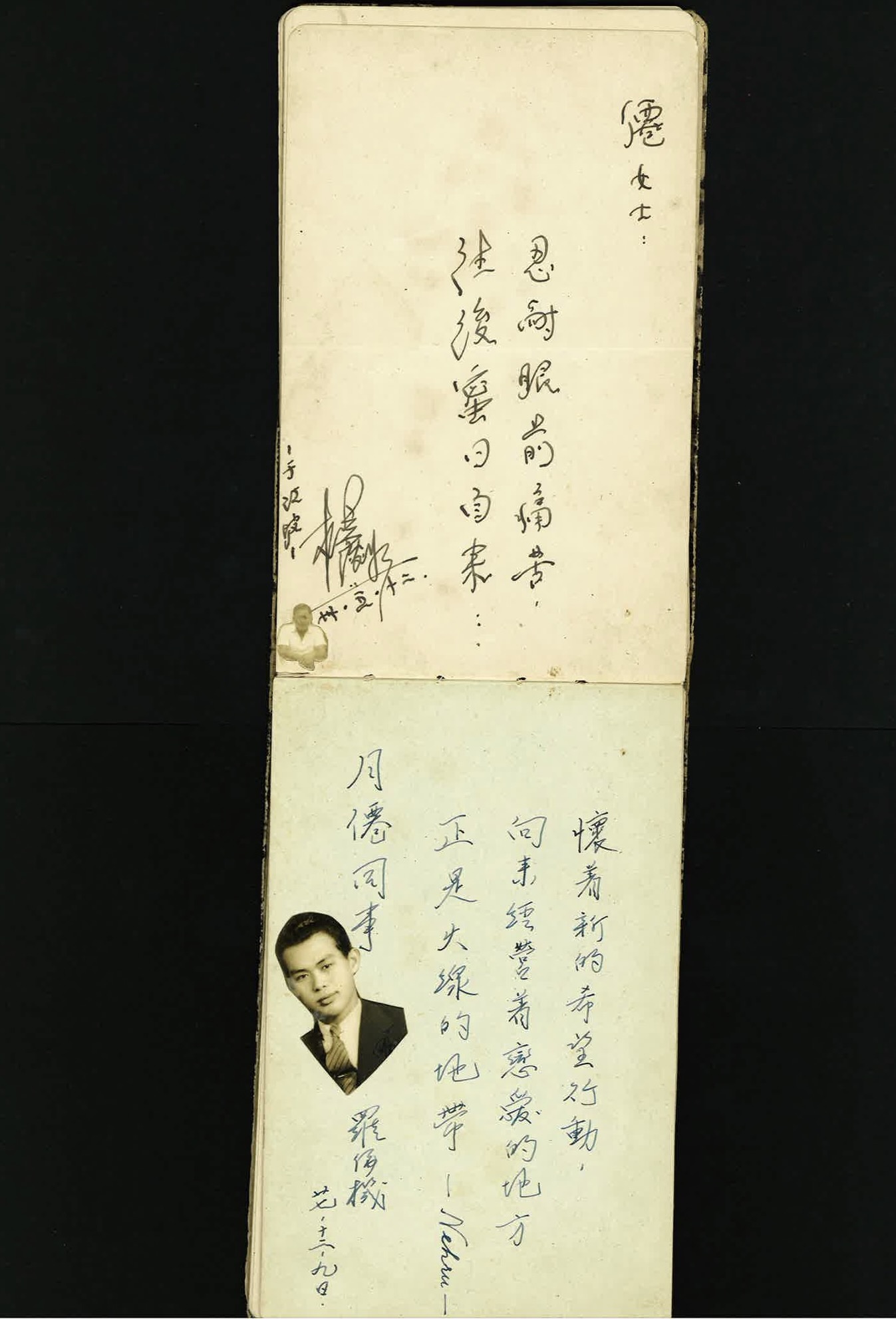Artefact: My Cantonese Grandmother’s Autograph Book
|
Miriam Wei Wei Lo
Translation [rough, favouring source language]:

“Teachers and friends:
Please leave behind photos and writing in this little autograph book.
In the future when we are scattered across the oceans, from your photos and your handwriting, I will be able to see your love return to me, your true friendship; surrounded by these memories, I will be able to recall the happiness of this present time.”
- Yue Xian -
I see you, grandmother, poised on the brink of a farewell, about to set sail for mainland China, full of hope for a proper education at a Chinese university.
You were already Cantonese at one remove - full blood, fluent in language, but a migrant. You grew up in Sarawak, not Canton. Home was already complicated.
I am a quarter Cantonese. I speak Mandarin but not Cantonese. I, too, am a migrant. Home and Identity are very complicated.
And not.
—
English inscription:

Kuching, 1938.
“To keep my friendship
is my delight
So in this book
I pray you’ll write”
Yours sincerely,
Yiet Sien
I live on stolen land. It has taken me many years to recognise this.
The land you grew up on, dear grandmother, was stolen too.
The Iban tribes were trying to wrest control of their land from the Sultan of Brunei.1 An English entrepreneur used his armed ship to defeat their rebellion. His reward, from the Sultan, was rulership over Sarawak. His nephew, the second white Rajah, invited Chinese immigration.2
Your parents, driven by famine, were part of that wave of migrants from southern China.
At least the Brooke dynasty gave the Iban a stake in their own country. The White Raj wanted partnership: mutual economic flourishing of Iban, Chinese and Indians; but with terms set at advantage for the rulers.
The English who came here, to Australia, struggled to even recognise the Indigenous peoples as fellow humans. Many of them sought to exterminate the Indigenous peoples. They certainly took their land.
Some of these settlers are also my ancestors.
Wherever I look I see complicity.
—
This is a Chinese version of peace:

A small cottage set in the mountains-where-it-is-perpetually-spring.
My question: Is it only possible to be at peace when we are alone?
—
“Embrace the new hope to guide your action. Face the direction where love may begin. Where you can find its detonator.”
- Nehru

This quote from your future husband: the man you’d spend most of your marriage trying to forgive.
min ngo dei ge zaai, you tong ngo mun min liu jan di zaai3
[forgive us our debts, as we forgive those in our debt]
Ahhh … forgiveness. And love and hope and friendship and happiness … Home and Identity are simple when these things are with us. Impossible when they are not.
A way forward: Acknowledging our complicity. Asking for forgiveness. Treating others as we would like to be treated ourselves.
This autograph book: a metaphor for things I long for – everyone forgiven and forgiving, every story heard, page after page after page.
Notes
1. https://www.britannica.com/place/Kuching
2. https://www.britannica.com/topic/Brooke-Raj
3. A line from a prayer by Jesus (recorded in Luke 11: 2-4). My Cantonese grandmother chose to become Christian. She was the first in her family to do so. She spent many years thinking things
through before making a decision. This line from Jesus’ prayer was pivotal for her. She felt she could not ask God for forgiveness for herself if she could not bring herself to forgive her husband,
specifically for his gambling losses during the Second World War that left her and her young children without money for food. When she finally forgave him, she felt able to ask God for forgiveness for her own errors, which, to her, was what it meant to be Christian.
Thanks to her paternal grandmother, Miriam Wei Wei Lo is a quarter Cantonese. She is also a quarter Hakka, with some Scots and English thrown in for good measure. This might explain why she is a softly-spoken Tiger Mum with big feet who is very tight-fisted with her money. It doesn't explain why she teaches creative writing at Sheridan Institute, but not everything in this life has to make sense. At first glance. She currently lives, with her noisy extended family, in Walyalup (Fremantle), Western Australia.
ig @miriamweiweilo